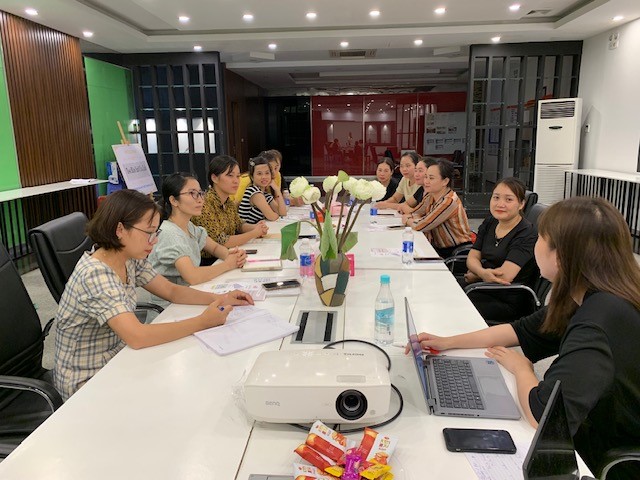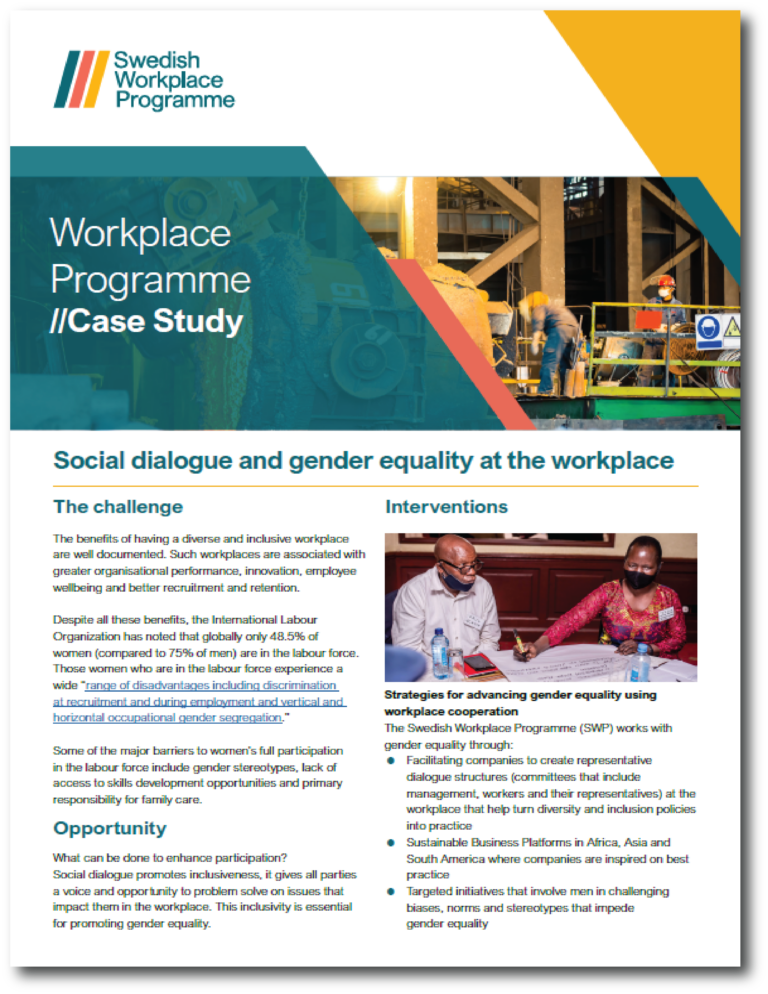The annual World Day for Safety and Health at Work on 28 April promotes the prevention of work-related accidents and diseases across the globe. NIR and Swedish Workplace Programme (SWP) emphasises the importance of occupational health and safety as a crucial component of decent work and highlights this opportunity to increase awareness of the importance of creating a safe and healthy work culture.
When you go to work, you assume that you will come home again in the same condition as when you left. Unfortunately, this is not always the case – some employees come home with injuries that affect their and their families’ lives while other employees are not feeling mentally well after a day at work.
Based on ILO estimates, 2.3 million employees die every year from work-related injuries and diseases. An additional 160 million employees suffer from non-fatal work-related diseases and 313 million from non-fatal injuries per year. The economic costs to companies and economies is significant. The ILO estimates that more than four per cent of the world’s annual GDP is lost because of work-related injuries and diseases.
Preventing work-related injuries and diseases is everyone’s responsibility but structures and pre-conditions needs to be in place to ensure that everyone can take on this responsibility. Authorities are responsible for providing institutional structures and laws ensuring occupational health and safety. This includes a national policy and an inspection system to enforce compliance with occupational health and safety laws. Employers are responsible for having OHS workplace policies and ensuring the implementation of these to safeguard their employees’ environment. Employees are responsible for working safely and protecting themselves, not endangering others, knowing their rights, and participating in the implementation of preventive measures.
The pandemic increased the speed in the OHS-work


When the COVID-19 pandemic hit the world, representing an unprecedent threat to business, companies saw the importance of quickly adopting new routines to keep their employees safe, not only against the virus but by improving the current safety aspect of the workplace. A[AC1] structure for dialogue within the workplace where employers, employees and trade union representatives could discuss occupational health and safety measures proved to be a success factor. Companies already having such a structure in place had the advantage of communicating more effectively to quickly find solutions to address the effects COVID-19 and to continue working safely.
Throughout the pandemic, SWP has invited companies, organisations, trade unions and sustainability experts in a knowledge sharing forum called Sustainable Business Platform, SBP. Participants have discussed short and long-term solutions to occupational health and safety challenges aiming at ensuring a safer work environment and the sustainability of their business.
During the same period SWP have initiated workplace programmes with companies to set up structures promoting inclusive dialogue in the workplace. The first steps, facilitated by the Regional Programme Coordinator in each market, have been conducting gap analysis, workshops and agree on action plans to improve working conditions and promote a safe and healthy workplace.
Read more about the Sustainable Business Platforms and learn more about the SWP approach in the workplace programmes.
Read about the UN World Day for Safety and Health at work






